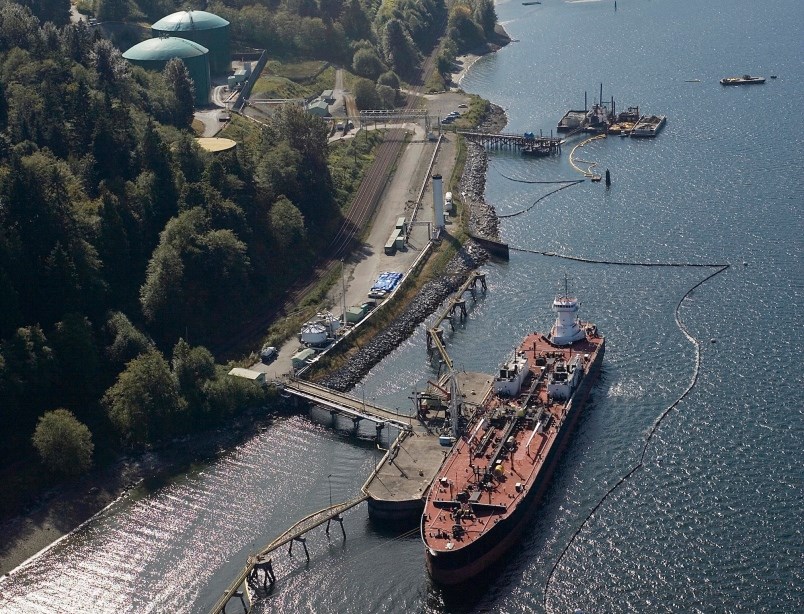The Trans Mountain pipeline expansion project will have “significant environmental effects,” but these are “justified” because the project is of utmost national importance.
This is a key point made in Trans Mountain’s submission to the National Energy Board’s reconsideration of the project. It was filed on Friday, Jan. 17, and makes the case that the project is so important that it justifies the environmental effects.
The submission says that the NEB, in its previous review – which was struck down last August by the Federal Court of Appeal – “found three significant adverse environmental effects that were likely to result from Project-related marine shipping. Trans Mountain submits that these significant effects are justified in the circumstances given the critical need for the Project and its important benefits for Canada, as found by the Board in the original proceeding, as well as the record of this Reconsideration hearing which demonstrates that all technically and economically feasible mitigation measures to reduce effects on SRKW (Southern Resident Killer Whales), Indigenous use related to SRKW, and greenhouse gas emissions from Project-related marine shipping have been, or will be, taken.”
Trans Mountain’s submission says that the NEB previously concluded that the project’s “considerable” benefits included market diversification, job creation, domestic competition among pipelines, local and regional economic growth resulting from pipeline materials procurement, and revenues to various levels of government.
“In addition, the Board identified several other benefits, including (i) community funding for management capacity, parks, infrastructure, events, educational programs and environmental stewardship, (ii) marine spill response, (iii) and local 879 economic and educational capacity development for local and Aboriginal communities and businesses. The Board should continue to rely on these previous findings, which were not affected by the Tsleil-Waututh decision.”
Trans Mountain contends that the project “has been, and will continue to be, the catalyst for enhanced environmental protection in the Salish Sea.”
The NEB is set to submit a report to the federal government in February.
You can read Trans Mountain's submission here.



